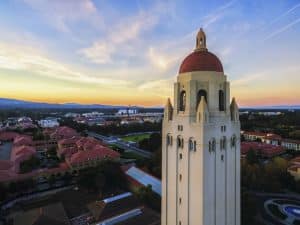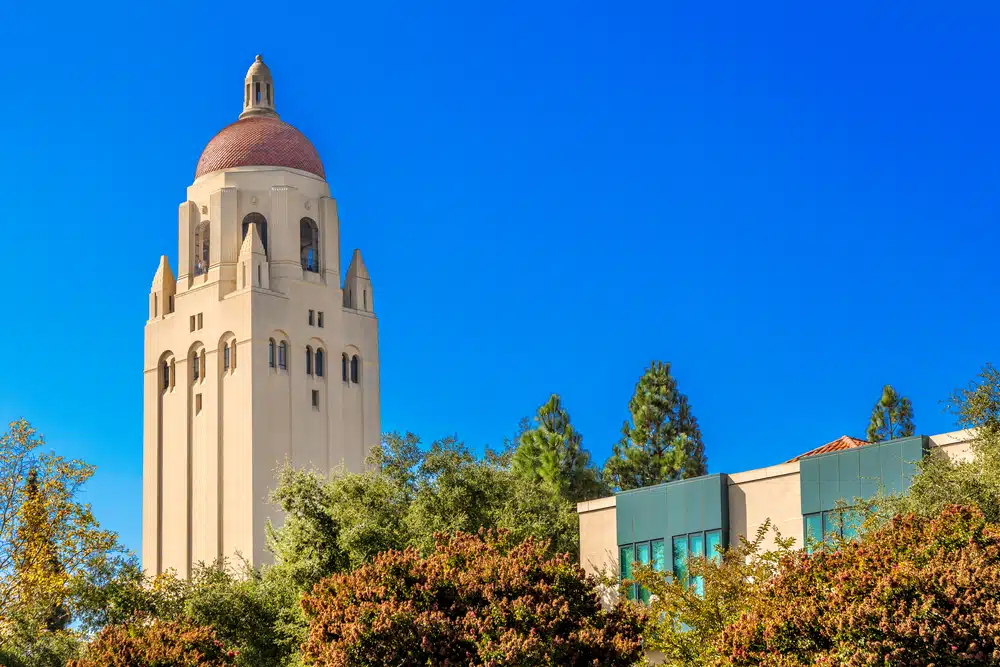Preparing for a Stanford Interview: Tips and Strategies
The prestigious Stanford University, known for its academic rigor and impressive alumni, is a dream destination for many students. The interview process can be daunting, but with adequate preparation, you can significantly increase your chances of success. This guide provides tips and strategies to help you excel in your Stanford interview.
Understanding the Stanford Interview Process
Before delving into the intricacies of preparation, it’s crucial to understand the Stanford interview process and its purpose. Stanford University conducts interviews to evaluate potential students more holistically, beyond their academic achievements and extra-curricular accomplishments. The aim is to gain a better understanding of your personality, interests, and aspirations.
When it comes to the Stanford interview, it’s not just about assessing your grades and test scores. The university wants to see the person behind the application – the individual with unique experiences, perspectives, and dreams. They believe that a diverse student body enriches the educational experience for everyone, and the interview is one way to identify those who can contribute to this diversity.
Stanford’s interview process is designed to assess your fit for the university. They want to recognize your ability to contribute and adapt to their environment, your aspirations, and how the university can help fulfill them. It’s not just about what you can gain from Stanford but also what you can bring to the table. Remember, Stanford is not just choosing students; it’s also choosing future alumni. Consequently, they prefer applicants who will make positive contributions to the university and beyond.

The Purpose of the Interview
Stanford’s primary objective when conducting interviews is to assess your fit for the university. They want to recognize your ability to contribute and adapt to their environment, your aspirations, and how the university can help fulfill them. It’s not just about what you can gain from Stanford but also what you can bring to the table. They prefer applicants who will make positive contributions to the university and beyond.
During the interview, the admissions committee wants to get a sense of who you are as a person. They want to understand your values, your passions, and your goals. They are interested in your unique perspective and how you can contribute to the Stanford community. The interview is an opportunity for you to showcase your personality and demonstrate why you would be a valuable addition to the university.
What to Expect During the Interview
The Stanford interview will likely last 45 to 60 minutes and is typically conducted by Stanford alumni. Expect questions about your academic interests, extracurricular activities, and aspirations. They might also ask about your favorite books, leaders you admire, and challenges you’ve overcome.
While the interview is an important part of the application process, it’s important to remember that it’s not meant to be an intimidating experience. The interview is more of a conversation than a formal interrogation, so anticipate a casual, friendly atmosphere. Remember, your interviewer likely went through a similar process and is there to help the university get to know you better.
During the interview, it’s important to be yourself and let your true personality shine through. Don’t be afraid to share your passions, interests, and experiences. Be prepared to discuss why you are interested in Stanford and how you envision yourself contributing to the university community. The interview is your chance to make a lasting impression and show the admissions committee why you are a perfect fit for Stanford.
Essential Preparation Steps
The key to a successful interview lies in preparation. Here are some essential steps you should take to prepare for your Stanford interview.
Preparing for an interview can be a nerve-wracking experience, but with the right approach, you can feel confident and ready to showcase your best self. It’s important to remember that the interview is an opportunity for you to not only demonstrate your qualifications but also to show your enthusiasm and fit for Stanford University.
Researching Stanford University
Thorough research about Stanford University is vital. Understanding Stanford’s values, traditions, academic programs, and campus culture can give you insight into how you fit into the Stanford community. Explore the university’s website, speak to current students or alumni, or read about the university’s latest achievements and initiatives.
By immersing yourself in the world of Stanford, you can gain a deeper understanding of what makes the university unique and how you can contribute to its vibrant community. Take the time to delve into the various academic departments, student organizations, and research opportunities that Stanford has to offer. This knowledge will not only impress your interviewer but also help you make an informed decision if you are accepted.
Additionally, familiarize yourself with any recent news or developments at Stanford. Whether it’s groundbreaking research, innovative programs, or notable alumni success stories, staying up-to-date will show your genuine interest in the university.
Remember, the more you know about Stanford, the better equipped you will be to answer questions and engage in meaningful conversations during your interview.
Reviewing Your Application
Reviewing your application gives you a chance to remember and reflect on the details you provided in your application. Be prepared to discuss your academic achievements, extracurricular activities, or volunteer work. The interview is an excellent opportunity to expand on anything you think was not adequately covered in your application.
Take the time to carefully review your application materials, such as your personal statement, letters of recommendation, and transcripts. This will not only refresh your memory but also help you identify areas where you can provide additional context or examples during the interview.
Also, make sure to clarify any anomalies, such as a gap year or a significantly weak academic year. Transparency and honesty will paint you in a favorable light. Use the interview as a chance to explain any circumstances that may have affected your academic performance or personal growth.
Remember, the interview is an opportunity to showcase your unique qualities and experiences that may not have been fully captured on paper. Use this time to highlight your strengths and demonstrate how you can contribute to the Stanford community.
Anticipating Common Interview Questions
A common practice is to prepare responses for anticipated questions. Revisit your high school experiences, achievements, challenges, and ambitions. Come up with examples that demonstrate your character, teamwork, leadership, and problem-solving skills.
While it’s important to have an idea of how you might respond to certain questions, it’s equally important to avoid memorizing your responses. The focus should be on having clear thoughts about each topic rather than delivering pre-determined answers. Authenticity and genuine engagement will make a lasting impression on your interviewer.
Consider practicing with a friend or family member to simulate the interview experience. This will help you refine your answers and become more comfortable articulating your thoughts and experiences.
Remember, the interview is not just a test of your knowledge and accomplishments but also an opportunity to showcase your personality and passion. Be yourself, stay calm, and let your genuine enthusiasm for Stanford shine through.
Developing Effective Interview Strategies
Now that you’ve understood the interview process and made the necessary preparations, it’s time to develop effective strategies.
When it comes to interviews, preparation is key. However, it’s not just about knowing the answers to common questions or rehearsing your responses. It’s also important to have a clear strategy in mind to ensure that you make the most of this opportunity to showcase your skills and qualifications.
Here are some additional strategies that can help you stand out during the Stanford interview:
Highlighting Your Strengths
The Stanford interview is your platform to showcase the strengths that make you a significant candidate. Identify your strengths and provide examples that illustrate those traits in action. It could be your ability to lead a team, your commitment to a cause, or your innovative thinking abilities.
However, simply stating your strengths is not enough. You need to go beyond that and provide concrete situations and experiences where your strengths influenced the outcome. This will not only demonstrate your capabilities but also give the interviewer a clear understanding of how you can contribute to the Stanford community.
For example, if you mention your ability to lead a team, share a specific project where you successfully led a group of individuals toward a common goal. Highlight the challenges you faced, the strategies you implemented, and the positive impact you made.
Addressing Your Weaknesses
Being honest about your shortcomings demonstrates humility and self-awareness. Importantly, whenever you mention a weakness, also discuss the steps you’ve taken to overcome it. This strategy shows your growth mindset, an attribute that Stanford admires.
However, it’s crucial to be cautious when discussing your weaknesses. Avoid mentioning weaknesses that could seriously question your ability to succeed in a challenging academic environment like Stanford. Instead, focus on areas where you have shown improvement and how you continue to work on them.
For instance, if you mention a weakness in time management, talk about how you have implemented effective strategies such as creating schedules, using productivity tools, and seeking guidance from mentors to improve your time management skills.
Communicating Your Interest in Stanford
An authentic demonstration of your interest in Stanford can set you apart from other candidates. Talk about specific programs, professors, or initiatives at Stanford that align with your career goals. Demonstrate alignment between Stanford’s offerings and your academic and professional aspirations.
Research the various opportunities available at Stanford and mention those that resonate with your interests and ambitions. Discuss how these opportunities can contribute to your personal and professional growth and how you can contribute to the Stanford community in return.
Remember, this is not just about why you want Stanford but also why Stanford should want you. Showcase your unique qualities, experiences, and perspectives that make you a valuable addition to the Stanford community.
By following these strategies and adding your own personal touch, you can make a lasting impression during the Stanford interview. Good luck!
Practical Tips for the Interview Day
Finally, let’s discuss practical tips for the day of your interview.
On the day of your interview, it is important to not only be mentally prepared but also physically presentable. Dressing appropriately for the interview is crucial. While it does not have to be overly formal, it is important to avoid casual or shabby clothes. Remember, a neat and professional appearance is desirable as it shows respect for the interviewer and the process.
When selecting your interview attire, choose something comfortable that you’re confident in. After all, your focus should be on the interview, not adjusting your attire. Wearing something that makes you feel good about yourself will boost your confidence and help you make a positive impression.
Dressing for Success
Dressing for success goes beyond just wearing the right clothes. It also includes paying attention to personal grooming. Make sure your hair is well-groomed, and your nails are clean and tidy. These small details can make a big difference in how you are perceived by the interviewer.
Remember, the goal is to present yourself as a professional who takes the interview seriously. By paying attention to your appearance, you are showing that you are prepared and ready to take on any challenge.
Managing Interview Nerves
It is natural to feel nervous before a big event like a Stanford interview. However, it is important to remember that your interviewer is there to get to know you, not grill you. Deep breathing exercises can help calm your nerves and reduce anxiety. Take a few moments before the interview to close your eyes, take deep breaths, and visualize yourself succeeding.
In addition to deep breathing exercises, positive visualization can also be helpful. Imagine yourself confidently answering questions and engaging in a meaningful conversation with the interviewer. Visualizing success can help boost your confidence and alleviate anxiety.
Confident body language is another important aspect of managing interview nerves. Stand tall, make eye contact, and use gestures to express yourself. Remember, your body language can convey confidence and make a positive impression on the interviewer.
Following Up After the Interview
After the interview, it is important to follow up with a thank-you note or email to your interviewer. Expressing gratitude for their time shows professionalism and appreciation. Keep the follow-up brief and polite, highlighting key points from the interview or mentioning something specific that you found valuable.
A well-crafted follow-up can leave a positive impression and set you apart from other applicants. It shows that you are thoughtful, detail-oriented, and genuinely interested in the opportunity. Remember, the interview is just one part of the application process, and a strong follow-up can help reinforce your candidacy.
Finally, it is important to remember that the interview is only one part of your application. While it is natural to focus on it, do not forget about the other components of your application. Take the time to review and polish your essays, gather strong letters of recommendation, and ensure that all other materials are submitted on time.
With preparation, research, and self-belief, you can approach your Stanford interview with confidence. Remember to be yourself, be open, and be confident. Good luck!
How AdmissionSight Can Help You with College Admissions
AdmissionSight is a college consulting firm that provides personalized assistance to students throughout the college admissions process. Here are some ways that AdmissionSight can help you:
Admissions strategy: AdmissionSight can help you develop a strategic plan for your college application process. Our professional consultants can assist with identifying schools that are a good fit for your academic, extracurricular, and personal goals and help you plan and prioritize your application strategy.
Application review: AdmissionSight can review your application and provide feedback on how to improve it. We can offer suggestions on making your application stand out and highlighting your strengths and unique qualities.
Essay coaching: AdmissionSight can help you craft compelling essays that showcase your personality, goals, and achievements. We can guide you through the essay writing process and provide feedback on your drafts to help you refine your writing.
Interview preparation: AdmissionSight can provide interview coaching to help you feel confident and prepared for college interviews. Our experts can offer tips on how to present yourself professionally and how to answer common interview questions.
Extracurricular planning: AdmissionSight can help you plan and develop your extracurricular activities to make them more impactful and meaningful. We can suggest activities that align with your interests and goals and provide guidance on demonstrating your leadership and initiative.
Overall, AdmissionSight can provide valuable guidance and support throughout the college admissions process to help you maximize your chances of getting accepted into the college of your choice.
With a high success rate of over 75%, we have built a strong network in the past decade. Book an initial consultation today, free of charge!








































